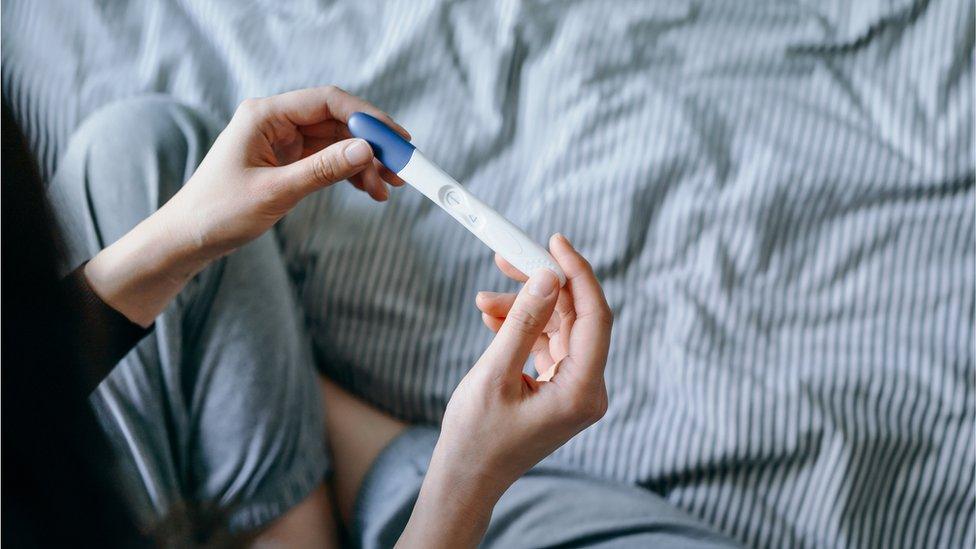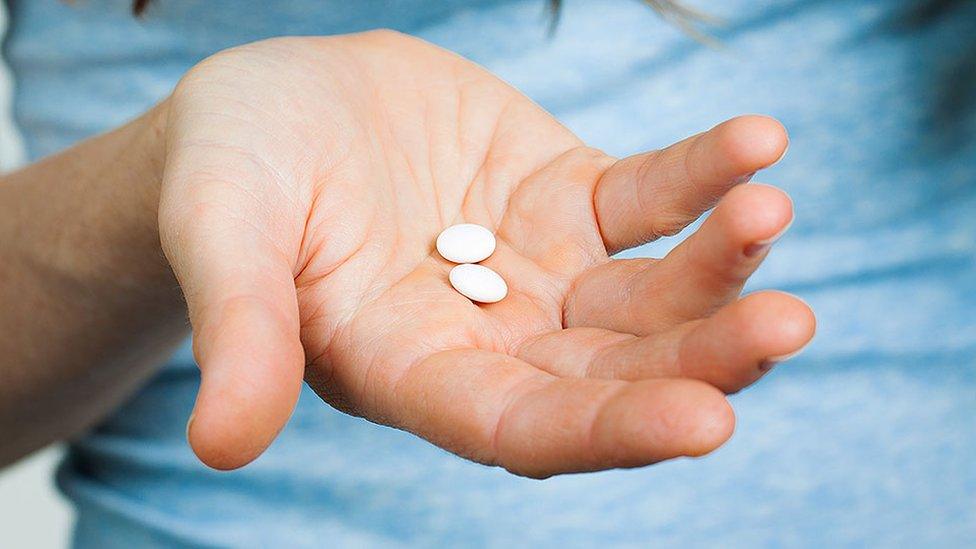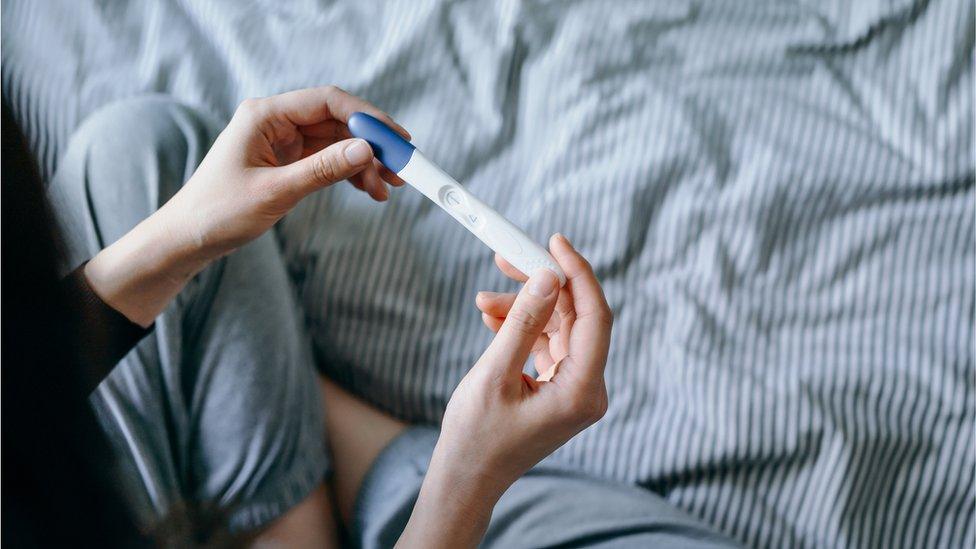Scotland urged to continue at-home abortions
- Published

Scotland has been urged to follow the example of England and Wales by continuing to offer at-home abortions.
The model, which enables woman to take medication in their own homes following a phone consultation, began as a temporary measure during the pandemic.
The Scottish government said it would not take a final decision on making the scheme permanent until the autumn.
But the British Pregnancy Advisory Service said the treatment was safe and called on ministers to act now.
Dr Patricia Lohr, BPAS medical director, said research found "overwhelming support" for the telemedical model.
She told BBC Radio's Good Morning Scotland: "They talked about it as being convenient, it enhanced their privacy, it meant that they were more in control about the timing and place of the abortion and, of course, it was more comfortable for them to have their abortion in the home environment."
However the Society for the Protection of Unborn Children (SPUC) condemned the policy and said it amounted to "state-sponsored backstreet abortion".
Earlier this year the UK government was set to axe the service and return to pre-lockdown arrangements in England and Wales.
Under those conditions, women would take the first of two pills under medical supervision, following a face-to-face consultation.
However, in March MPs raised concerns this could increase late abortions and voted to keep the change by 215 votes to 188.
At the time the decision was welcomed by the Faculty of Sexual and Reproductive Healthcare (FSRH) and the Royal College of Obstetricians and Gynaecologists (RCOG).
The service is still available in Scotland but a final decision on its future has yet to be made.
Dr Lohr told the programme women seeking an abortion were concerned about becoming stigmatised and judged, and being targeted by protestors outside clinics.
She said: "This model of care removes the possibility of that happening to them."

Women can currently take both pills at home
The expert also highlighted the benefits to the NHS and said the model allowed for earlier, quicker and cheaper treatment.
She added it also saved women the cost of travel, childcare and taking time off work.
Several studies had shown the treatment was safe and effective, she added.
"The risks with medical abortion are extremely low. Upwards of 95% of women will have a successful medical abortion and where they do have complications they tend to be easily managed."
Dr Lohr called on ministers to move quickly in making a decision.
She said: "We think that there is sufficient evidence for the safety and effectiveness of this model and now we know that it is a model of care that women want.
"So I can see no reason why the Scottish government needs to delay until later in the year and it should move forward in making it permanent now."
'Reckless policy'
Grace Browne, SPUC communications manager, described the practice as "dangerous" for women.
She said: "This is a reckless policy which leaves women to suffer the effects of abortion at home, with no medical supervision or support, and then forces them to dispose of foetal remains on their own.
"This policy even deprives women of the opportunity to meet with a doctor in person.
"This is not a model of care. This is a cruel policy which is nothing more than state-sponsored backstreet abortion."
Ms Browne accused ministers of "imposing an unwanted abortion policy on an unwilling nation" and called for it to be reversed.
The Scottish government confirmed the current arrangements, which allow women to take both sets of abortion pills at home where it is clinically appropriate, remain in place.
A spokeswoman said the arrangements are available in Scotland up to 12 weeks' gestation. In England it is available for women less than 10 weeks pregnant.
"A comprehensive and detailed clinical evaluation of early medical abortion at home is due to be completed in the autumn," she said.
She added the chief medical officer wrote to NHS boards in December to ask them to make telemedicine routinely available for initial early medical abortion appointments.
The spokeswoman said the options for continuing the current arrangements were being reviewed and an update would be provided soon.
Related topics
- Published30 March 2022

- Published30 March 2022
